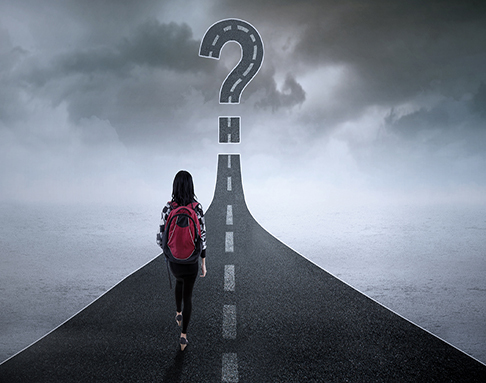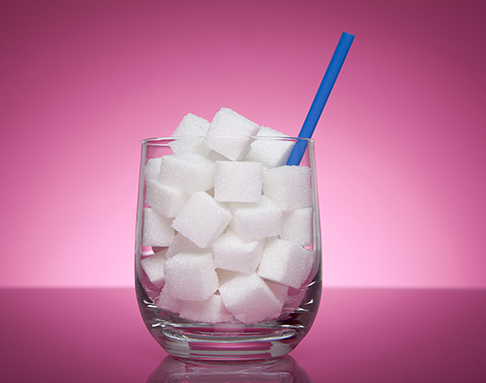Cara Natterson's Blog, page 12
August 11, 2019
Building a Launchpad
Joy used to be the buzzword of good parenting, but that was so 2017. Next came resilience, or grit for those who wanted to trade up with a four-letter version. Now, especially as high school graduates set themselves to fly off to college, it’s launching. Or rather, failure to launch. As in: they’re all grown up but they don’t know how to navigate anything on their own.
If you want to avoid a panicked transition out of the house, or even if you are just looking to build independence (buzzword of 2020?) slowly and steadily, read this piece. And then begin to implement elements, depending upon the ages of your kids, where you live, and the realities of your logistical life. At the very least, all of our kids can get better at helping around the house (case in point: what used to be called chores are really baby steps toward doing it on one’s own... not to mention, there’s research showing big benefits to household work by the kids).
Ultimately, a successful launch means we have raised kids who can eventually take care of themselves. While getting there might take some grit, the outcome brings everyone joy.

Sarah Clark was happy to get the call from her college teen, but couldn't believe what she was hearing."My kid called from college and said, 'I'm sick, what should I do?'" Clark said. "I'm like, what do you mean what do you do? You have a drug store down the street. Go have at it."A new poll co-directed by Clark found that there are a lot of parents in the same boat. Most parents think they are doing enough to prepare their teens for adulthood, but they're… READ MORE
August 10, 2019
You Are Right, According to Confirmation Bias

Why do we believe what we believe? Not just when it comes to health and wellness, by the way. This question seeps into every corner of our lives, from past history to current politics, family lore to eye-witnessed drama. We believe what our senses tell us to be true: what we see (or think we see), hear, read, and live. And once we become believers, it’s remarkably difficult to shift perspective. READ MORE
July 18, 2019
When Kids Lose Weight
Weight loss is a touchy subject at any age. There are some people who are unhealthfully heavy, and it becomes a doctor’s job to counsel them about the risks. But that advice can feel shaming, impossibly trite, or simply unattainable. Sometimes it’s all three. Then there are people who are unhealthfully lightweight, and ironically, they experience all of the same hurdles.
If you think this is tricky territory for adults, try addressing it among kids. Self-esteem establishes itself during childhood - we can all easily flash back to a definitive moment in our youth when we were made to feel awful - so much so that comments about weight, even ones meant to be helpful and encouraging, can resonate for a lifetime. Often not in a good way.
New research about weight loss among kids suggests that even when kids would benefit from losing weight, they often don’t know how to do it safely or effectively. And while the study didn’t look at the emotional overlay, it seems obvious to me that our fear of talking about this - our parental worry about saying the wrong thing and scarring the psyche of our child - means that we often say nothing, leaving our kids to try to figure out how to take ownership of their health without adult support.
There’s some good news: kids are absorbing many of the messages about healthy living circulated widely to adults trying to do the same. So they often use strategies like drinking more water or eating more fruits and veggies but fewer junk foods. These approaches work; they also may lead to a lifetime of better eating habits.
The best advice I can offer is three-pronged: First, have regular conversations about nutrition that focus on health, not weight (and while you’re at it, throw away the scale!). Healhfulness is the goal, after all, and so it should be the starting point. Second, don’t ignore what’s in front of you, whether it’s your own weight or your child’s. If you cannot figure out a way to have the conversation or if you simply fear it to the point of avoidance, let your pediatrician help. We would do anything for our children, so we need to help them learn to eat well whether they weigh too much, too little, or just the right amount for their height. And finally, practice what you preach. If there’s a better way for one child to eat, then everyone else in the family will benefit, too. Clear out the pantry and restock the fridge with items that will benefit everyone at home.

Thanks to i yunmai for making this photo available freely on @unsplash
More U.S. teens, especially girls, have been attempting to lose weight, according to newly analyzed federal survey data.Results from the 2013-2016 National Health and Nutrition Examination Survey (NHANES) indicated that nearly 38% of adolescents said they had attempted to lose weight within the last year, with more girls attempting weight loss than boys from 2013 to… READ MORE
What to Eat in the Heat

With summer’s rising temps come diminishing appetites. On a hot night, most of us would turn down a rich bowl of pasta in exchange for lighter options with more fresh fruits and veggies and fewer weighty carbs. Doesn’t necessarily mean, though, that we eat healthier diets as the outdoor thermostat rises. Ice cream shops…READ MORE
July 17, 2019
Screen Diets
We are what we eat…and increasingly, what we watch as well.
So, it should come as no surprise that just like there are nutritionists who can advise on best dietary approaches, now there are screen coaches who can help teach parents how to manage their kids’ consumption of content. The idea is perfectly summarized with this line from a recent NY Times piece: Screen consultants come into homes, schools, churches and synagogues to remind parents how people parented before.
If needing a screen coach sounds extreme (or even ridiculous), think again. None of us had any version of today’s mobile devices when we were young, so naturally we find ourselves struggling towards consensus on the right way to parent around them. This is exacerbated by the fact that many parents are on their own screens incessantly, making them instant hypocrites when telling their own kids to power down. Another hurdle is the social component: a significant part of social life now lives on screens rather than corded phones or playgrounds. The list of downstream complexities is long, starting with: 24/7 access to just about everything; the impossibility of monitoring on-screen interactions; screen-induced distractibility; sleep deprivation; we all know this list.
Like the parenting coaches quoted in this article, I have been the speaker preaching screen reduction many, many times over. I have also evolved my thinking over the years, yes thanks to raising two teenagers. I still impose pretty strict rules about use and there will never be a device in a bedroom overnight if I can help it, but demonizing screens has to be balanced with the reality that they’re not entirely bad. These days I find myself amazed by clear benefits for us and for our offspring, from the positivity that can flow from a virtual support group of peers to the relief brought by access to that assignment that was left behind at school but, in the 21st century, can be retrieved with ease on the school website (adapted for mobile, of course!) or texted by a friend.
Screen use and what happens on devices might just be the most common - and evolving - pediatric question I get these days, leaving me wondering whether I should hang a shingle as a coach...

Parents around the country, alarmed by the steady patter of studies around screen time, are trying to turn back time to the era before smartphones. But it’s not easy to remember what exactly things were like before smartphones. So they’re hiring professionals.A new screen-free parenting coach economy has sprung up to serve the demand. Screen consultants come into homes, schools, churches and synagogues to remind… READ MORE
July 16, 2019
Sugar Cancer?
A new study is making big waves this summer. The highly respected medical journal BMJ published research on more than 100,000 people, looking at their risk of cancer relative to their consumption of sugary or artificially sweetened drinks. Here’s what they found: over a 9-year study period, the people who drank the highest volume of sugar-sweetened (but not artificially sweetened) beverages also had the highest risk of cancer – 30% higher for all cancer and 37% higher for breast cancer – compared with those who drank the least.
For people who want to see the actual study, the link is here. If you’re not used to reading scientific research, the NY Times summary is here. Worth noting: 100% fruit juice was associated with increased cancer risk as were sugar sweetened sports drinks and energy drinks too, so we’re not just talking super-sweet sodas.
What underlies the association? Some is accounted for with weight gain, because excess weight can cause certain types of cancer. Some seems to be a function of visceral adiposity, which refers to fat stored in the abdomen, generally around organs like the liver and pancreas. This is often called active fat because it influences how some hormones function, which is why visceral adiposity impacts things like glycemic index. (For those not in the know, higher glycemic index diets are highly associated with type 2 diabetes). Perhaps the various chemicals added to or found in these sweetened drinks – from colorings to pesticides – are also culpable, but no one yet knows for sure.
Ultimately, this data leads me to a mantra I have repeated over and over through the years: drink water, lots of it, until your pee starts to look light yellow or even crystal clear.

A new study suggests there may be a link between the consumption of sugar-sweetened drinks and fruit juices and the development of cancer.The study is observational and does not claim that drinking sugary drinks causes cancer. But after controlling for known variables, French researchers did find an association.The study, in BMJ, involved 101,257 people, average age 42, who had filled out repeated 24-hour food-intake questionnaires. The form listed 97 sugary drinks and... READ MORE
July 15, 2019
We Are What We Eat
Feeding our children is primary to parenthood. The instinct kicks in moments after birth, partly because when a baby sucks, she is soothed. And so we feed off of our childrens’ cues and they feed off of us, often quite literally.
As they grow, many parents feel stressed as they retreat into their own narrow feeding worlds, furiously working to nourish their kids several times per day. Babies’ diets expand from liquid-only to solid, but once toddlerhood arrives it of contracts from willing-to-try-almost-anything to rejection-of-what-feels-like-everything. The palates of older kids can be all-inclusive or crazy picky, all the while our parental mission is honed: feed them. But what? How much? How often? How junky? How processed? The answers can be elusive.
These questions are global, experienced by parents in every corner of the earth. This amazing article previews a new book by Gregg Segal called Daily Bread. It pulls the lens back (precisely 12 feet in the air), documenting the foods kids consume across the world.
There is so much here to digest. But perhaps the most powerful theme is this: junk food in many parts of the globe is expensive, and therefore a rare treat; the opposite is true in the US and many other industrialized nations, where highly processed foods are low-priced dietary staples. This book serves a beautiful visual reminder of the need for us here in the US to flip our own food equation.

photo by Gregg Segal
With childhood obesity on the rise and globalization homogenizing nutrition, photographer Gregg Segal set out to discover what a week’s worth of food looked like around the world. By focusing on the diets of children, whose lifelong eating habits are created in these formative years, Segal’s stunning photographs speak to themes of nutrition, class, and culture.His new book, Daily Bread , spreads across 120 pages and details the stories behind the portraits. Each child was asked… READ MORE
June 20, 2019
Talking About Not Talking

I just delivered to my publisher a book about raising boys through puberty (coming to bookstores this winter – hoorah!) and here’s the crux of where I have landed on the topic: When boys enter puberty they get quiet, at least quieter than they used to be, and we as parents accept it, even respect it, and we tend to get…READ MORE
The Intersection of Life + Art

When a film tells the story of an individual facing a challenge, there’s nothing more powerful than learning that the actor involved has lived with – and often conquered – the challenge at hand. So when my friend Brian Gott told me about his search for an actor with cerebral palsy to star in his new film project, an adaptation of Out of My Mind, I jumped at the chance to share the ask with all of you.
I met Brian and his heart of gold through the Starlight Children’s Foundation, a 35-year old charity dedicated to delivering happiness to seriously ill children. Makes perfect sense because Brian’s reach has always extended across healthcare and entertainment, unifying the two worlds in one way or another: the Burkle Global Impact Initiative, the Elizabeth Taylor AIDS Foundation, and the Entertainment Industry Foundation among them. In other words, this guy is the real deal, and he’s looking to make a profound film with an actor who has already lived at least part of the role.
So if you know of an actress between the ages of 11 – 14 with cerebral palsy, please share this announcement. Even if you don’t, still share. What an opportunity for a young talent who has grown up with CP, not to mention an opportunity for the world to see that talent on the big screen. Link is here for those who’d like to share.




